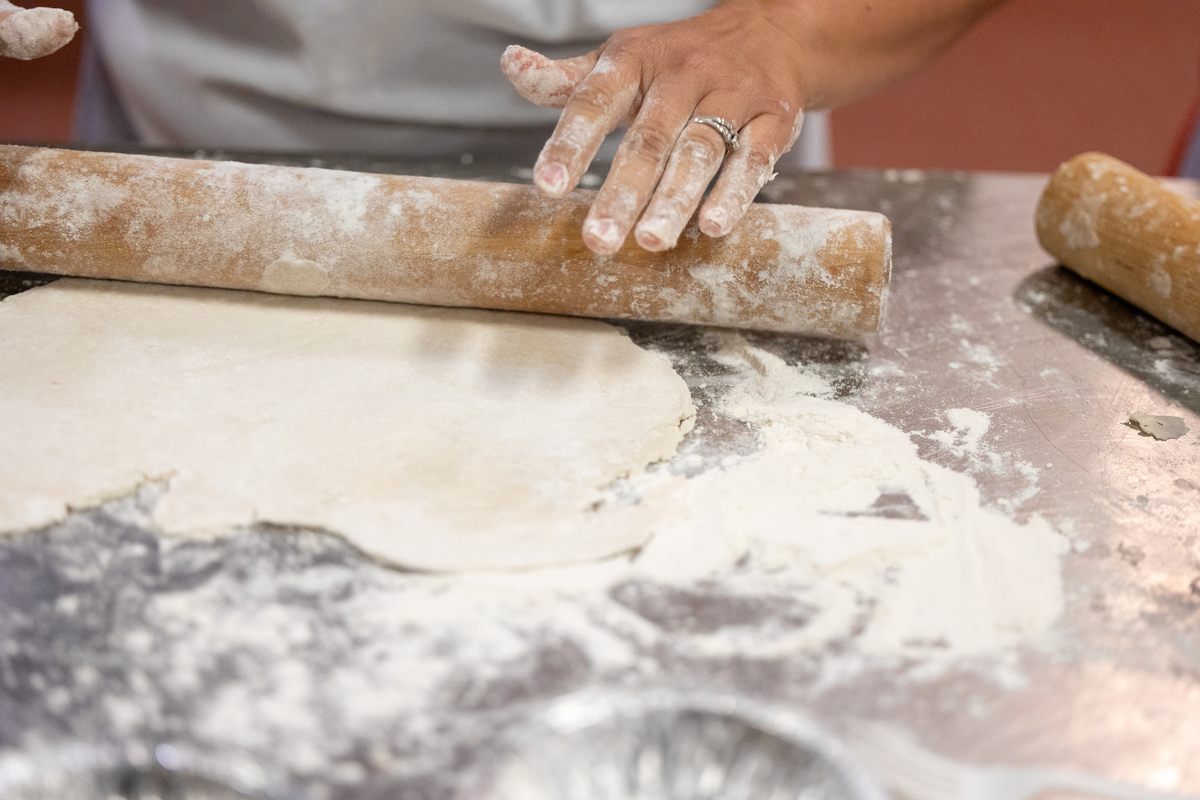Food Safety is a Must for Holiday Baking
Monday, October 30, 2023
The holiday season is just around the corner, and it won’t be long until the sweet smells of scrumptious treats waft through the air.
Holiday treats are just as much fun to make as they are to eat, but it’s important
to take
precautionary measures to avoid foodborne illness, said Christi Evans, Oklahoma State
University Extension assistant food safety specialist.
“While those time-honored recipes you may use each year hold a special place in every family, following safe food-handling practices is vital,” Evans said. “There are four safety practices to follow, including clean, separate, cook and chill.”
- Clean: Bacteria can be spread throughout the kitchen and get onto hands, cutting boards, utensils, countertops and food. Wash hands and surfaces often.
- Separate: Keep all raw foods, including flour and eggs, separate from cooked foods
to
prevent cross-contamination of bacteria. - Cook: As tempting as it can be to taste raw dough or batter, avoid doing so. Raw flour
and eggs can contain harmful bacteria such as Salmonella and Escherichia coli (e. coli),
so eating just a small amount of uncooked dough can be harmful. Cooking is the only
way ensure baked foods containing flour and eggs are safe to consume. - Chill: Refrigerate perishable foods quickly to slow the growth of harmful bacteria.
Evans said most baked goods like breads, rolls and cookies have a low moisture and high sugar content that makes them safe for counter or pantry storage. Some baked products with higher moisture content need to be stored in the refrigerator.
“Holiday treats such as pumpkin, cream or custard-based pies made with eggs, cream, sour cream, cream cheese and milk must be stored in the refrigerator,” she said. “Don’t forget about cakes and pastries with cream cheese fillings and icings, whipped cream frostings and those with cut fresh fruit toppings. These foods cannot be left out on the counter at room temperature for more than two hours.”
Pies without dairy products, such as baked fruit pies, can be stored at room temperature, covered, for up to two days, but will keep longer if stored in the refrigerator.
Homemade breads and rolls may be stored in the refrigerator, but it isn’t necessary. Evans said homemade baked goods lack the preservatives found in store-bought products, so they’re more susceptible to spoilage than commercial products. Products that won’t be consumed within a day or two will last longer if stored in the refrigerator.
“As you open your recipe box to gather the recipes for those long-time family favorites, keep food safety on the front burner to ensure everyone has a safe and happy holiday,” Evans.

